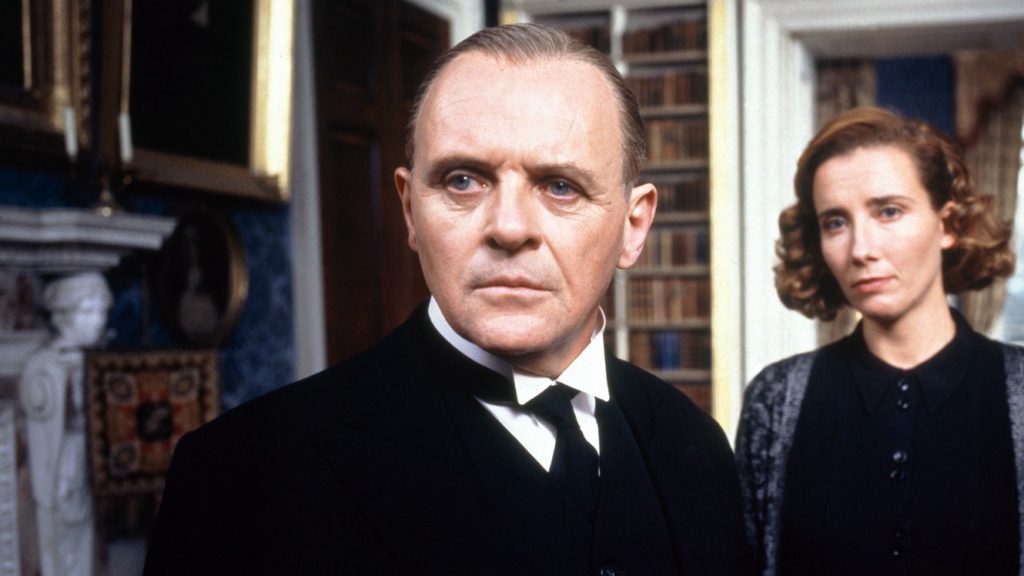
Frida
Since Jeff Bezos has grabbed headlines for turning the tables on the National Inquirer, it seems a good day to blog about his favorite novel. Why would the richest man in the world fall in love with Kazuo Ishiguro’s Remains of the Day?
Unfortunately, there’s not much to go on so this will involve some speculation. Here’s what Bezos has to say about the 1989 Mann Booker Prize–winning novel:
If you read The Remains of the Day, which is my favorite book of all time, you can’t help but come away and think, I just spent 10 hours living an alternate life and I learned something about life and about regret.
Ishiguro’s novel is about a top-of-the-line English butler who believes he owes unquestioning allegiance to his master. Unfortunately, Lord Darlington has Nazi sympathies—most of the novel is set in pre-World War II Britain—and at one point he sends two of his maids back to Germany when he discovers they are Jewish. As he explains to the unhappy head housekeeper, Stevens overrides his doubts, refusing to second-guess his master:
Miss Kenton, let me suggest to you that you are hardly well placed to be passing judgments of such a high and mighty nature. The fact is, the world today is a very complicated and treacherous place. There are many things you and I are simply not in a position to understand concerning, say, the nature of Jewry. Whereas his lordship, I might venture, is somewhat better placed to judge what is for the best.”
In Stevens, Ishiguro appears to have melded Jeeves or Bunter with a humorless Samurai bodyguard.
Stevens doesn’t only override doubts about his master’s politics. He also quashes a budding affection for Kenton, who admires his commitment to excellence. Refusing to think or act for himself, he lets his devotion to his master define him, and he lives the rest of his life conscious that he could have supported the maids and could have had love.
I know very little about Bezos and am not interested enough to do much probing. Whatever his faults, however, he has done two admirable things that the novel may have assisted with. Although, like Stevens, his self-discipline puts him at the top of his field, unlike the butler he has accepted soul-expanding opportunities.
First, he has used his wealth to support one of the world’s great newspapers without attempting to turn it into a reflection of himself. (Contrast this with Rupert Murdoch and the Wall Street Journal.) Second, in his clash with the National Inquirer, he has endured public humiliation in order to call out a bully.
If you haven’t been following, the Inquirer threatened to release humiliating sex photos unless Bezos got the Post to back off its relentless investigation into the Saudi murder of Post journalist Jamal Khashoggi. Such extortion attempts are apparently the way the Inquirer does business.
If Bezos is anything like Stevens, nothing would be as painful as having private secrets revealed. Ishiguro had little difficult merging a British butler with a Japanese bodyguard because many Brits and Japanese share a fierce reserve, and Bezos may identify with Stevens because he does as well. (To cite another literary example, Haruki Murakami gives us a horrifying image of a man skinned alive to capture the pain of self-revelation.) Like many before him, Bezos could have surrendered to keep this part of his life private.
Instead, he described to the world the material the Inquirer had obtained and shared their threatening e-mails. Now it’s the Inquirer that is facing accountability for its dodgy work on behalf of Donald Trump and Saudi Arabia.
Rather than live with regret, Bezos appears determined to face his fears straight on and take action. Maybe Remains of the Day showed him the cost of remaining in one’s comfort zone.
Further thought: Since I penned this, Bezos has grabbed headlines in a less positive way, having decided to pull out of a planned Queens expansion after facing popular opposition. His sweetheart deal with the city, which was going to overpay him $3B in tax incentives, puts him in the category of rich guys who throw their weight around, not tormented little people grieving over lost opportunities. Literature can do only so much.

